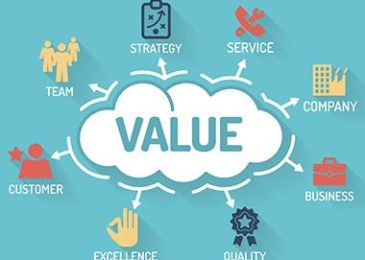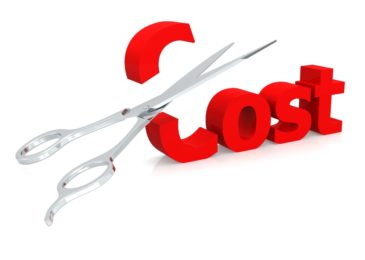According to Merriam-Webster, reputation is ‘overall quality or character as seen or judged by people in general’, or ‘recognition by other people of some characteristic or ability’. A good or bad reputation can be the difference between a thriving business and one that struggles, so your brand reputation is critical to your success and – ultimately – your bottom line.
Let’s take a look at some of the ways reputation is important.
What are the benefits of a good reputation?
- Increased (perceived) value
 There is a correlation between a good brand reputation and perceived product value. If your brand has a reputation for high-quality goods and brilliant customer service, research has shown that 8 out of 10 consumers would be willing to pay a premium to buy from you.
There is a correlation between a good brand reputation and perceived product value. If your brand has a reputation for high-quality goods and brilliant customer service, research has shown that 8 out of 10 consumers would be willing to pay a premium to buy from you.
In relation to this, data has also shown that higher perceived value also leads to better customer satisfaction, as well as a significant increase in word-of-mouth referrals – the Holy Grail of customer acquisition methods.
Beyond the (perceived or otherwise) value of your goods and services, reputation also goes a long way when looking at business valuations. If you have any intention to sell your business, acquire other businesses or merge with other companies in the future, your reputation can contribute to and elevate the value of your business.
- Lower marketing costs (including more organic traffic and referrals)
 A good reputation also leads to a direct reduction in marketing costs. As above, your business will benefit from an increase in word-of-mouth and organic referrals, as well as direct traffic to your social media channels and website. For more recognisable brands with good reputations, you can afford to spend less on brand awareness or top-of-funnel marketing strategies, and focus more on your acquisition or conversion-lead marketing methods.
A good reputation also leads to a direct reduction in marketing costs. As above, your business will benefit from an increase in word-of-mouth and organic referrals, as well as direct traffic to your social media channels and website. For more recognisable brands with good reputations, you can afford to spend less on brand awareness or top-of-funnel marketing strategies, and focus more on your acquisition or conversion-lead marketing methods.
Another benefit is that you’ll also receive an increase in social media engagement and company reviews, which will help boost your reputation and further demonstrate credibility and trustworthiness – two of the most important factors for SEO and customer buying decisions. A good reputation creates a snowball-like effect for online advertising, so it’s important to get this right.
- Increased profits
 It bears repeating that lower marketing and acquisition costs will lead to an increase in your bottom line.
It bears repeating that lower marketing and acquisition costs will lead to an increase in your bottom line.
It’s also easier to create brand loyalty and customer advocacy when your brand has a good reputation, leading to repeat business, referrals and reducing customer churn.
The opposite applies to businesses with a poor reputation. Your product is perceived to have a lower value, and you will have to work much harder to gain and retain customers, and because of this, your profit margin will be weakened.
Monitoring your brand reputation
When thinking about brand reputation, it’s important to monitor it frequently. Some useful methods include social media listening, brand monitoring and using Net Promoter Scores (NPS) to understand how people think of you and speak about your brand online.
There are a lot of brand reputation monitoring tools available online that make tracking mentions of your business across the internet easy – a simple way to do this is to use Google Alerts, and set up regular email reminders that let you know when your brand or related keywords (as set by you) are mentioned in the news, blogs, web pages or even published research. You can also use Google Alerts and similar tools to monitor keywords related to your products or services, and to keep tabs on the competition.
Improving your reputation
Beyond monitoring your reputation, it’s important to make a conscious effort to improve and uphold it.
Generally, your brand reputation won’t just be about your products or services, it’s also reflected in your interactions with the public and your customers. So, it’s important to respond publicly to reviews, conversations and mentions of your brand to keep your reputation up – even the awkward or unhappy ones!
Another key to improving your reputation is to have a robust escalation strategy in place, should you face a PR crisis or a poor customer experience that goes viral. While the impact of the initial crisis will be felt either way, the element that actually affects your reputation is your official response to a crisis or bad PR. By creating a measured and thorough emergency response plan, you’ll be ready to take control of the narrative and even boost customer advocacy with your response.
Overall, your brand reputation is something that affects many elements of your business from your pricing structure, customer interactions and even your turnover. By delivering a high-quality product or service, keeping customers engaged and listening to the conversations about you online, you can effectively manage, monitor and grow your reputation.

